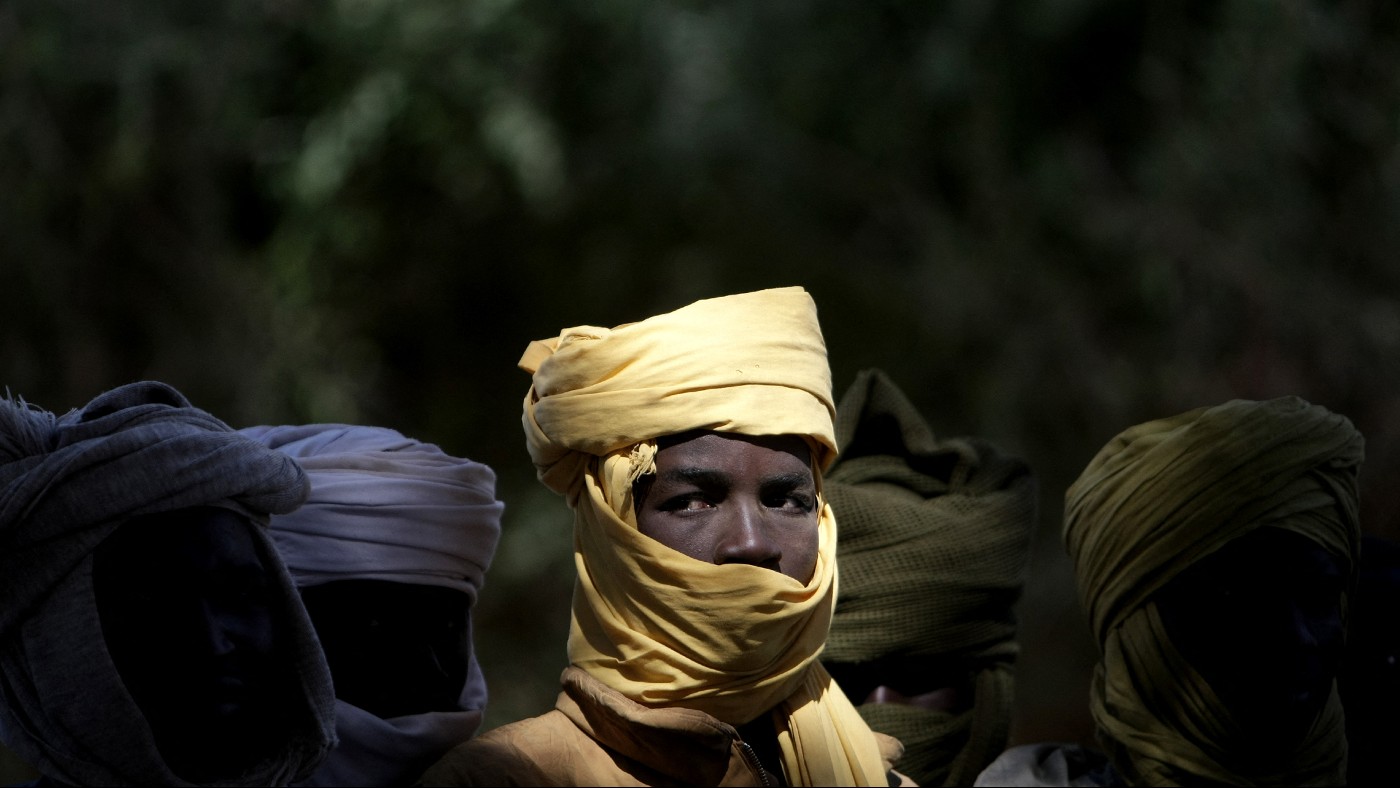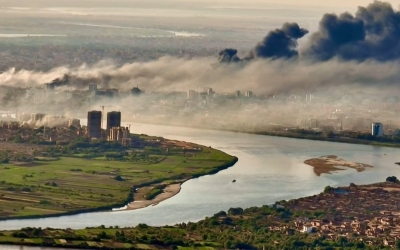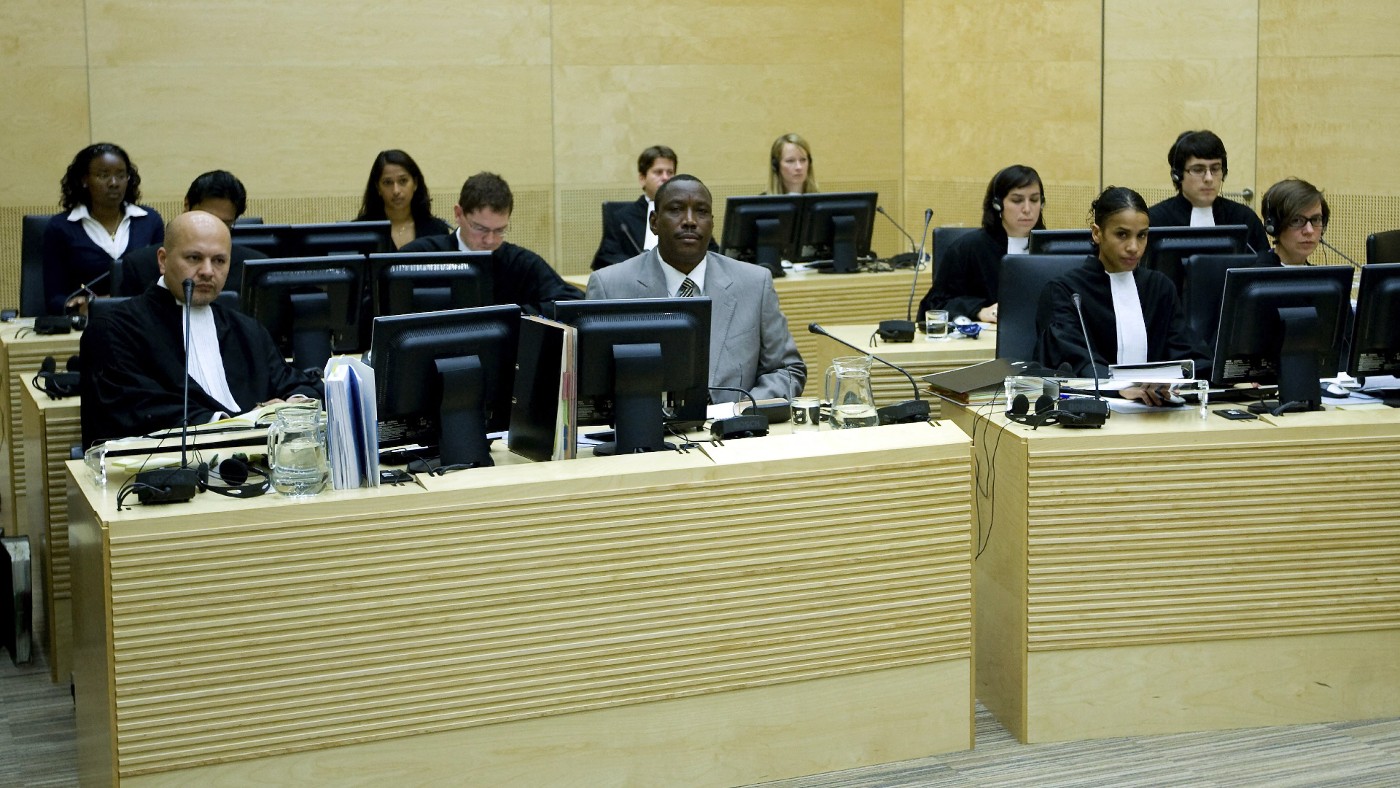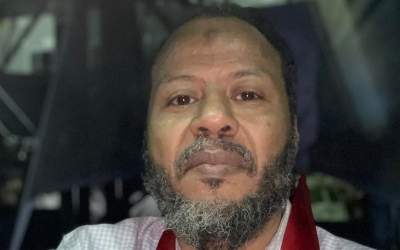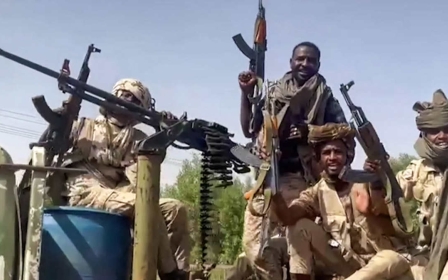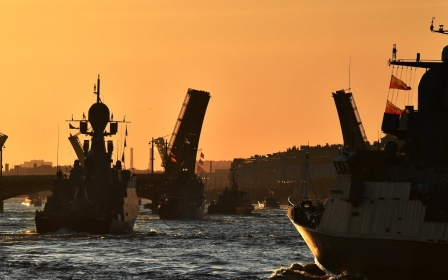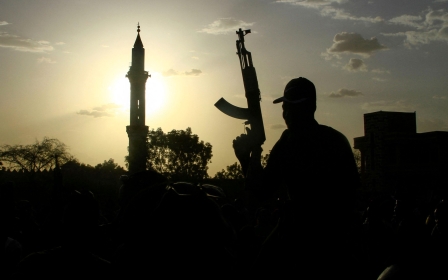A Sudanese rebel once wanted by the ICC takes up the army's cause
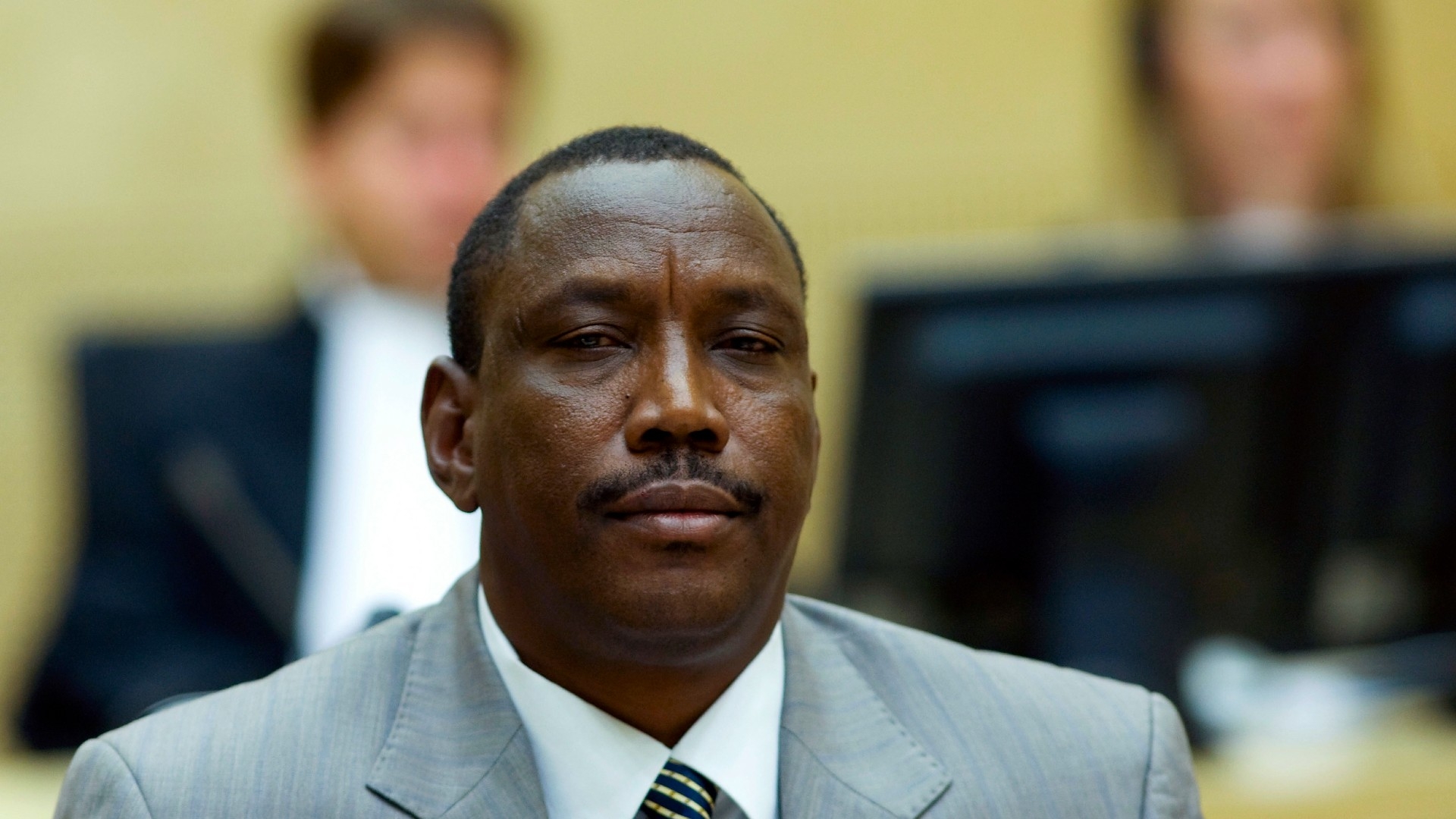
Bahar Idriss Abu Garda was with his fighters in the wilderness of North Darfur’s border region with Chad when he got a call from a friend at the United Nations.
It was 2009. The Sudanese rebel leader was told that he was wanted by the International Criminal Court (ICC), which suspected him of being involved in attacks on UN peacekeepers in the Darfur town of Haskanita two years earlier.
Abu Garda was a leading figure in the Sudanese war that raged in the sprawling western region of Darfur throughout the first decade of this century, as Darfuri groups angry with endemic deprivation and marginalisation took up arms against the Khartoum government.
By 2009, he headed the United Resistance Front, a collection of rebels that had splintered from the Justice and Equality Movement (JEM), a prominent armed group whose fighters had attacked a UN base in Haskanita and killed a dozen soldiers.
“At that time, I was in the bush, I was fighting the government,” Abu Garda, 61, tells Middle East Eye.
New MEE newsletter: Jerusalem Dispatch
Sign up to get the latest insights and analysis on Israel-Palestine, alongside Turkey Unpacked and other MEE newsletters
“I said, OK, no problem. I am educated, I am a graduate of university. I cannot commit these kinds of crimes. I decided to go to the ICC because I didn’t have other alternatives.”
Abu Garda was given a long list of defence lawyers working at the Hague-based court that he could employ to represent him. The name of a particularly well-qualified British lawyer stood out: Karim Khan.
“He called me, and he said: ‘Really? You want to come to the Hague voluntarily?’ I told him: ‘Yes, I want to. But can you tell me, what is the ICC?’”
Today, Khan is the ICC’s chief prosecutor, investigating crimes in the latest, ongoing, war in Sudan.
He is also under huge pressure in the West for requesting arrest warrants for Israel’s prime minister, Benjamin Netanyahu, and defence minister, Yoav Gallant, over the Israeli war on Gaza.
Ghosts of Darfur
Abu Garda, meanwhile, is a politician heading the Liberation and Justice Party and is now supportive of the Sudanese army he once fought. He was the first person to ever hand himself in to the ICC voluntarily, and prosecutors dropped the charges against him in 2010.
In 2011, Abu Garda signed an agreement with the government of then-president Omar al-Bashir, one of a series of pacts with rebel groups that brought the Darfur war largely to a close.
'Sudanese in Khartoum and Gezira say these atrocities are unprecedented. But we are saying that none of this is unprecedented'
- Bahar Idriss Abu Garda, former Darfur rebel leader
That conflict is sometimes known as the 21st century’s first genocide. An estimated 300,000 people were killed in Darfur, as Bashir’s government pitted Arab militias known as the Janjaweed against the rebels, who were mostly drawn from Black African tribes.
The Janjaweed was eventually regularised by Bashir as the Rapid Support Forces (RSF), a powerful paramilitary group led by Mohamed Hamdan Dagalo, better known as Hemeti.
Since April 2023, Hemeti’s RSF has been battling the Sudanese army for control of the country.
Almost all of Darfur is now in the hands of the RSF, many of whose fighters participated in the previous war, and the paramilitary force has been accused of widespread abuses and "genocide against non-Arab groups".
The war has also laid waste to Sudan’s capital Khartoum, as well as its sister city Omdurman on the other side of the Nile, and more recently key towns and cities in the fertile states of Gezira, Sennar and Gedarif to the south.
While previous conflicts had been fought on Sudan’s periphery, now violence has reached the very heart of the country.
“Sudanese in Khartoum and Gezira say these atrocities are unprecedented. But we are saying that none of this is unprecedented because they committed the same in Darfur,” Abu Garda says.
“Maybe something positive that can come out from the suffering is that now all the Sudanese understand that what happened in Darfur before was really terrible.”
As someone who fought the military for eight years, Abu Garda believes that the inequalities, discrimination and oppression faced by Sudanese can only be overcome by inclusivity and participation in the government, which is currently dominated by army chief Abdel Fattah al-Burhan.
Abu Garda served as health minister under Bashir, but was supportive of the security forces’ decision to oust the longtime autocrat in 2019 following a popular uprising.
He is scathing, however, of the civilian political leaders that then formed a civilian administration, who he describes as being factional, ineffective and lacking a popular base.
When they, too, were removed by Burhan and Hemeti in 2021, Abu Garda effectively responded to the coup with a shrug. More worrying to him were the conversations he later had with RSF chief Hemeti, who became the second-most powerful man in the country after Burhan.
Abu Garda describes being visited at his home by Hemeti and his brother Abdelrahim Dagalo.
“He told me: ‘You are from Darfur, and we are Darfuri, and we need to join arms together’,” Abu Garda recalls.
Hemeti complained that the Jalaba - a name used for the Khartoum elite - were difficult people and that the two men should collaborate. Abu Garda got the sense that Hemeti was trying to test his willingness to move against Burhan.
When he realised the former rebel was not interested, Hemeti tried intimidating him in a phone call instead, Abu Garda says.
In September 2022, a member of the RSF who is also in Abu Garda’s tribe, the Zaghawa, warned him that a coup was being planned against Burhan and that the former rebel leader should increase his security.
Abu Garda alerted the authorities, but his friend in the RSF then told him the coup had been postponed.
Abu Garda now believes that plan was enacted last year when the RSF and Sudanese Armed Forces (SAF) came to blows and Burhan’s residence in the military headquarters in Khartoum was invaded.
Sudan's humanitarian disaster
The situation in Sudan is critical. According to US estimates, around 150,000 people have been killed in the war so far.
More than 10 million Sudanese are displaced within the country, which the United Nations calls the world’s worst displacement crisis.
UN experts have also accused both sides of using starvation as a weapon of war, with approximately 25.6 million people - more than half of the population - going hungry. A report last month said 755,000 people are in famine conditions and at risk of imminent death.
Though the RSF is making advances in southern Sudan and even pushing towards Port Sudan, which the military-backed government is using as a de-facto capital with Khartoum in ruins, Abu Garda thinks one side emerging totally victorious is unlikely.
'I think that the western countries don't want to put any pressure on the UAE. If they want to do it, they can do it immediately'
- Bahar Idriss Abu Garda
He also believes the fractured nature of the international community’s response to Sudan means chances of a fair, negotiated settlement are diminishing.
The RSF is backed overtly and covertly by the United Arab Emirates, with the Emiratis appearing to supply Hemeti’s forces with weapons, gear and funding as they tear through the country.
Burhan’s army has struggled to counter the RSF’s battle-hardened fighters on the ground, relying on air strikes that have been criticised for being indiscriminate and pummelling urban areas.
With occasional rounds of peace talks in Jeddah, Addis Ababa and elsewhere going nowhere, Abu Garda urges the West to come to the Sudanese army's aid, avert more massacres and help impose peace.
The notable lack of western interest in ending the war has seen the Sudanese Armed Forces (SAF) establish closer ties with Russia and Iran, which has supplied armed drones.
“I think that the western countries don't want to put any pressure on the UAE. If they want to do it, they can do it immediately,” Abu Garda says. “So, in this case, it is normal for SAF to find other partners. It is legitimate.”
Perhaps if Abu Garda’s former defence lawyer, Karim Khan, issued arrest warrants for senior RSF leaders, it might place pressure on the UAE and encourage the international community to help end the fighting.
Yet, Khan has told the UN Security Council that he needs help to collect evidence and investigate the war in Sudan. Abu Garda finds that puzzling.
New York-based rights group Human Rights Watch said in May that the RSF’s massacre of Massalit people in West Darfur’s el-Geneina was an act of ethnic cleansing and possible genocide. Up to 15,000 Massalit were killed by the RSF and its allied Arab militias in June, according to UN experts.
Another international human rights organisation, the Raoul Wallenberg Centre, found there is “clear and convincing evidence” the RSF is committing genocide in Darfur.
Khan himself has visited Sudanese refugee camps in Chad, where people who fled Darfur told him first-hand about what they had witnessed and endured.
“You have plenty of evidence there. I don't know why Karim is now saying that they need more evidence,” Abu Garda says.
The former rebel leader fears the prosecutor may be under pressure not to act. “I think the ICC is an important institution,” Abu Garda says, though he draws a distinction between the judges - who he describes as “very professional” - and the prosecutor’s office.
“There is some kind of politicising of the prosecutor, even in my case I think.”
Abu Garda points to comments Khan made to CNN after he applied for arrest warrants for Israeli and Hamas leaders. The prosecutor said a senior elected western leader urged him to spare Netanyahu, arguing that the ICC was “built for Africans and thugs like Putin”.
“I think Karim is a good guy. But I think a lot of pressure has been put on him,” Abu Garda says. “Maybe because of that he wants to delay.” The ICC prosecutor's office declined to comment on the allegations.
That said, Abu Garda remains an advocate of international justice - just as long as it applies to everyone, including those in the West.
Does he have any advice for Netanyahu, Ismail Haniyeh and the other Israeli and Hamas leaders wanted by Khan?
“Go to the ICC,” says Abu Garda. “Because international justice has to be implemented for everybody.”
Middle East Eye delivers independent and unrivalled coverage and analysis of the Middle East, North Africa and beyond. To learn more about republishing this content and the associated fees, please fill out this form. More about MEE can be found here.


